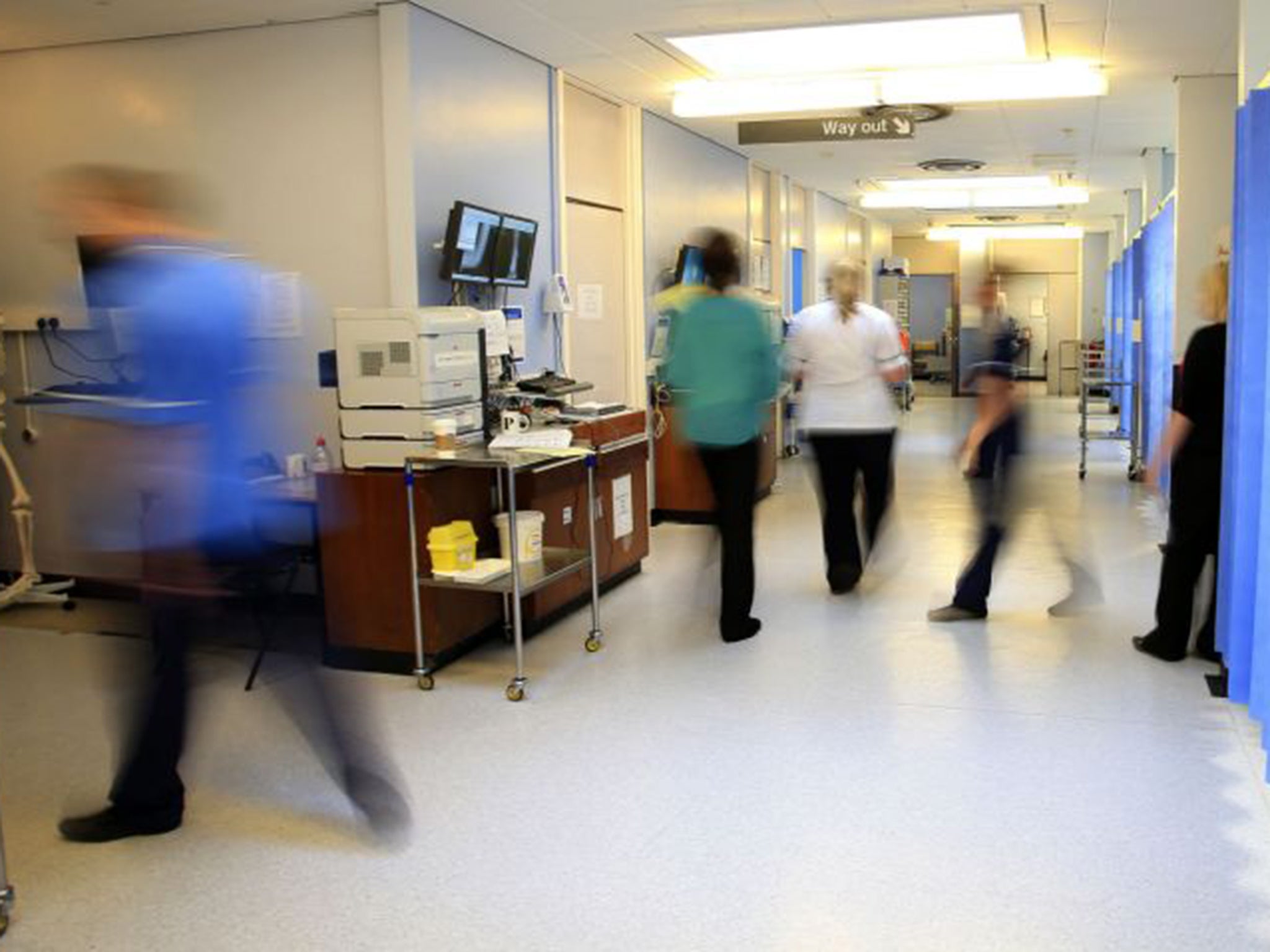Two parties, two flawed sets of plans for the NHS
Labour are offering a financial increase, while the Tories have been reticent to commit

Your support helps us to tell the story
From reproductive rights to climate change to Big Tech, The Independent is on the ground when the story is developing. Whether it's investigating the financials of Elon Musk's pro-Trump PAC or producing our latest documentary, 'The A Word', which shines a light on the American women fighting for reproductive rights, we know how important it is to parse out the facts from the messaging.
At such a critical moment in US history, we need reporters on the ground. Your donation allows us to keep sending journalists to speak to both sides of the story.
The Independent is trusted by Americans across the entire political spectrum. And unlike many other quality news outlets, we choose not to lock Americans out of our reporting and analysis with paywalls. We believe quality journalism should be available to everyone, paid for by those who can afford it.
Your support makes all the difference.Four months until election day and a clearer picture is now emerging of how two main parties would fund and run the NHS if they win in May.
But important questions remain – are their plans credible, do they provide value for money and can promises and pledges made now really be trusted?
Labour is offering the biggest real terms financial increase in NHS resources. At its annual conference last year, the party announced that it would use revenues from a mansion tax to pay for a £2.5bn fund that would pay for 20,000 more nurses, 8,000 more GPs and 3,000 more midwives.
The party has also agreed to increase general healthcare funding by £2bn in 2015/16 – matching a promise made by the Coalition in last year’s Autumn Statement.
In contrast, the Conservatives have been reticent to make any specific commitments to long-term funding of the NHS. They have pledged an extra £2bn in funding next year but have not committed to increase spending beyond that. They have, however, pledged to continue to ring-fence the health budget so it cannot be cut to meet future austerity targets.
Both plans, however, have a few big problems.
Take Labour first. If the party is elected in May, it will be most susceptible to pressure to increase NHS wages that have been effectively frozen, in real terms, for the past few years.
But of the NHS’s current £100bn budget, around £44bn goes on staffing, and any pay increases would rapidly eat into investment that would otherwise be spent on new drugs and services. Until we know what Labour will do on pay, it is very hard to know how credible their overall plans are.
Labour has also committed itself to repealing many of the Coalition’s healthcare reforms. But if they do that, they risk embarking on yet another costly NHS re-organisation that eats up money but has little or no direct benefit to patients.
There is real danger with Labour that while they may put more money in, it will simply be eaten up with very little to show for it. Nothing the shadow Health Secretary Andy Burnham has said so far suggests that he is serious about difficult reforms.
In some ways the opposite is true of the Tories. There is a belief among some in the party that the only way to improve NHS efficiency is to hold its feet to the fire of austerity.
And while the Conservatives have pledged short-term increases in resources next year, they have not committed themselves to the longer-term funding that health experts believe will be necessary to offset increasing costs from new drugs, treatments and extended life expectancy.
Not only this, but Conservative plans are for further deep and sustained cuts to local Government spending. And as the current A&E crisis shows, if you cut money from social care you simply end up pushing greater problems onto the NHS.
In order for the sums to add up over the next five years, the NHS will need more money than the Conservatives have promised, greater pay restraint and tougher choices than Labour have acknowledged, and better governance than the NHS has so far delivered. If not, patient care will suffer.
A poll released today found that only half the public expect that the NHS will still offer a universal service to a high standard in 10 years’ time. Whoever forms the next Government is going to need to get their act together if they’re going to prove the naysayers wrong.
Join our commenting forum
Join thought-provoking conversations, follow other Independent readers and see their replies
Comments